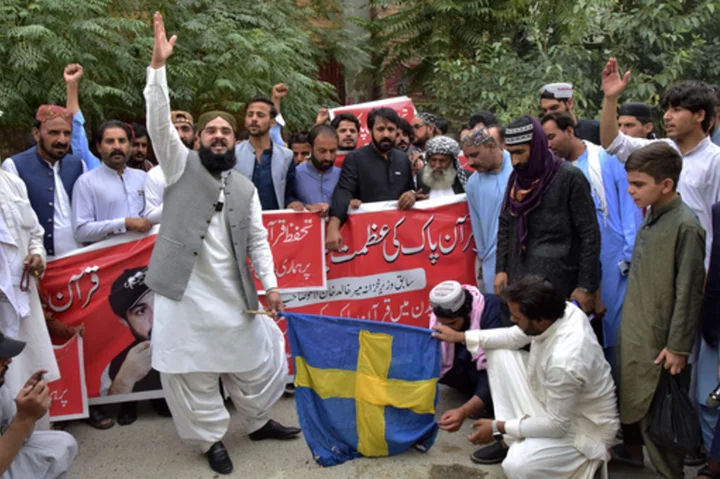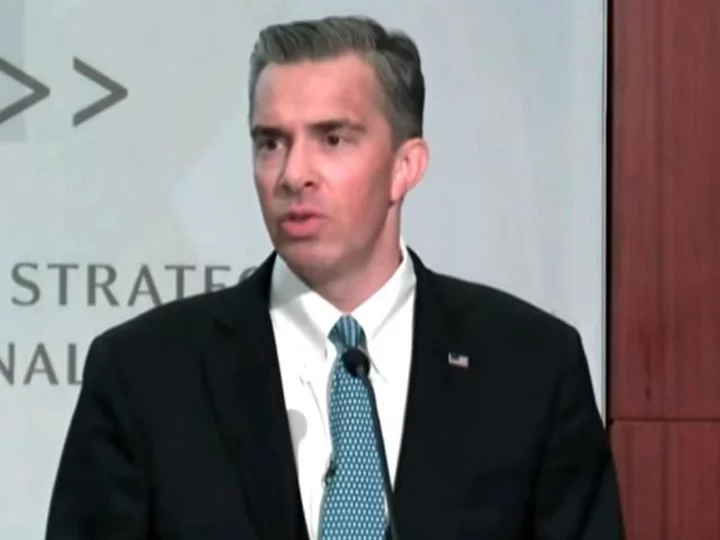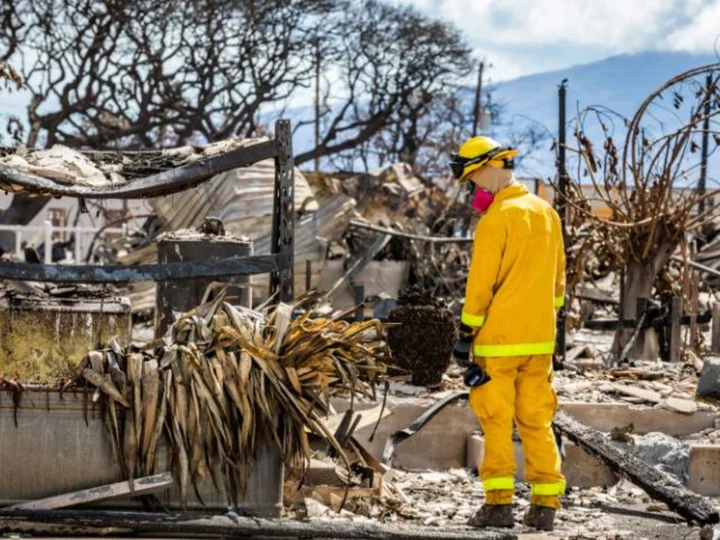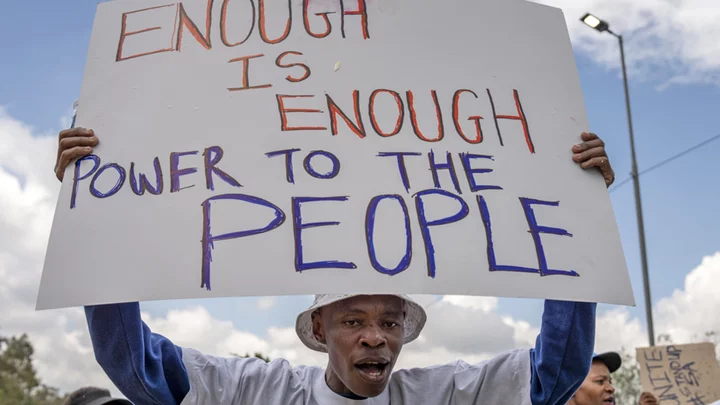STOCKHOLM (AP) — A Quran burning and a string of requests to approve the destruction of more holy books have left Sweden torn between its commitment to free speech and its respect for religious minorities.
The clash of fundamental principles has complicated Sweden's desire to join NATO, an expansion that gained urgency after Russia’s invasion of Ukraine but needs the approval of all current members. Turkey has blocked Swedish accession since last year, citing reasons including anti-Turkish and anti-Islamic protests in Stockholm.
Then, last week, an Iraqi Christian immigrant burned Islam’s holy book outside a Stockholm mosque during the major Muslim holiday of Eid al-Adha, an act that the man said displayed his feelings about the Quran.
The burning triggered widespread condemnation in the Islamic world. And along with similar recent protests by a far-right activist, it sparked a debate in Sweden about the limits of freedom of speech. Now, Swedish police say they have received new requests for demonstrations by individuals who want to burn the Quran, as well as the Torah and the Bible.
Muslim countries have urged Sweden to enact bans and Pakistan’s prime minister, Shehbaz Sharif, called for a daylong protest to defend the sanctity of Islam's holy book on Friday, when Pakistan’s parliament will discuss Quran burning.
Even some liberal commentators in Sweden argue that the protests should be regarded as hate speech, which is outlawed in the country when it targets ethnicity or race. But many in Sweden say criticizing religion, even in a manner that is considered offensive by believers, must be allowed and that Sweden should resist pressure to re-introduce blasphemy laws, which were abandoned decades ago in this predominantly Lutheran but highly secularized Scandinavian nation.
“It is a very serious situation for Sweden,” said Magnus Ranstorp, a terrorism expert who is strategic advisor for the Center for Societal Security at the Swedish Defense University.
Stockholm police on Wednesday said they had received two new applications for book-burning protests in the capital: one from an individual who wants to burn the Quran outside a mosque and another from someone who wants to burn the Torah and the Bible outside Israel’s Embassy.
A third request that involves “setting a religious text on fire” had been filed in the southern city of Helsingborg, local police chief Mattias Sigfridsson told The Associated Press.
Police have not yet decided on the requests.
“In Sweden, we have the freedom of expression. We also respect people who have a different opinion and the fact that it may hurt some feelings. We have to look at the law. That is what we do,” Sigfridsson said.
Stockholm police tried to stop Quran-burning protests earlier this year but were overruled by a court that said such actions were protected by Swedish law.
Citing that decision, police allowed the protest last week where the man identified in Swedish media as a Christian from Iraq burned the Quran outside a mosque in Stockholm on Eid al-Adha. Muslim leaders in Sweden deplored the incident but the strongest reactions were in the Middle East. The Swedish Embassy in Baghdad was briefly stormed by angry protesters. The Organization for Islamic Cooperation condemned the act and criticized Swedish authorities for allowing it. Iran held back on sending a new ambassador to Stockholm and Pakistan asked the U.N. Human Rights Council to schedule a special session on the issue. Outside the Muslim world, Pope Francis also lamented the incident.
Meanwhile, the Swedish government issued a statement saying it “strongly rejects the Islamophobic act committed by individuals in Sweden,” adding that it “in no way reflects the opinions of the Swedish Government.”
That elicited criticism from several commentators in Sweden, who said the government needs to stand up for freedom of speech and refrain from passing judgment on individual protests.
“I think it is exceptional and extremely inappropriate for the government ... to criticize an individual demonstration carried out by a person who, by all accounts, has stayed within the bounds of the law, who has only used his constitutional freedom of expression,” Nils Funcke, a prominent Swedish freedom of speech advocate, told public broadcaster SVT.
Sweden worries the situation is starting to resemble the fury Denmark faced from Muslim countries in 2006 following the publication of newspaper caricatures of the Prophet Muhammad. Danish consulates and embassies were burned and the cartoonists faced death threats from radical Islamists. Danish officials’ attempts to explain how such caricatures were protected under freedom of speech were widely dismissed in the Muslim world.
Ranstorp said the timing of the latest Quran-burning protest, just as Swedish and Turkish officials were getting ready to hold talks about Sweden’s NATO bid this week, was suspicious.
“We have foreign powers, like Russia for example, which spread information in Arabic about this. We have Turkey, which is using it for leverage in the NATO debate,” Ranstorp said.
The Iraqi man behind the protest told Swedish media it was aimed at Islam and not Sweden’s NATO application.
The Swedish Security Service has warned of Russian interference in Swedish society.
“In general, the Swedish Security Service sees how authoritarian states, like Russia, use proxies in order to destabilize or influence Swedish public opinion and decision-making,” agency spokesman Adam Samara said.
Previously non-aligned Sweden and neighboring Finland rushed to apply for NATO membership after Russia’s full-scale invasion of Ukraine last year. Russia responded with warnings of “serious military-political consequences” that would require “retaliatory steps by the Russian federation.”
Finland joined NATO in April. Turkey and Hungary are the only NATO countries that have not yet ratified Sweden’s accession.
___
Olsen contributed from Copenhagen, Denmark and Munir Ahmed contributed from Islamabad, Pakistan.









